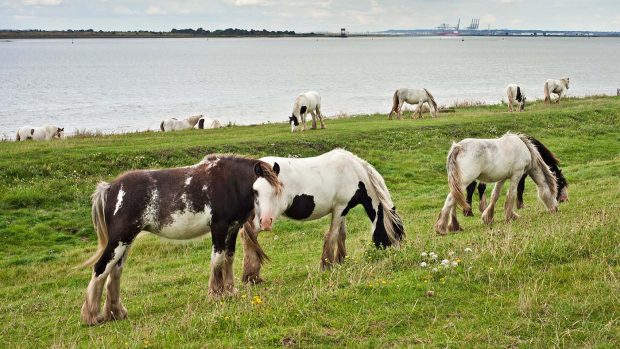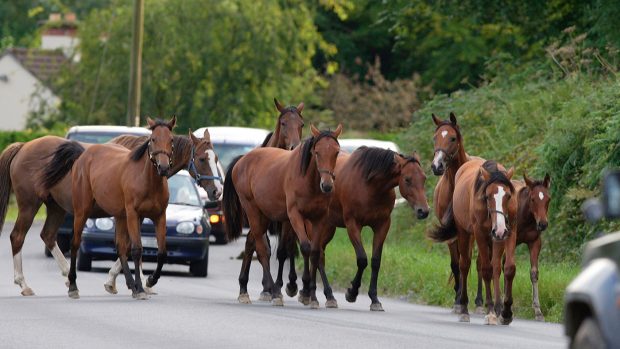A “major milestone” in the fight to increase legislative powers to deal with the fly-grazing crisis was unveiled last week (16 July).
A private members bill has been brought forward by MP for York Outer Julian Sturdy and is backed by countryside organisations and equine welfare charities.
Welfare charities estimate that at least 3,000 horses are being illegally grazed in England.
The aim of the bill is to force the government to follow the example of Wales, which introduced legislation in January to give local authorities the power to seize horses abandoned on private or public land without permission.
Currently in England, when horses are dumped on private land, landowners have a duty of care until an owner is found. Most horses left to graze are not microchipped, making it difficult to trace the owner.
The number of abandoned horses reached a peak last winter — World Horse Welfare rescued 76% more horses in comparison to 2012.
“The reason why fly-grazing is a growing problem is it’s so easy to get away with,” said Roly Owers of the charity. “If there is effective legislation people will stop doing it. It is as simple as that.”
RSPCA’s David Bowles added: “It is now up to the government to decide if they want to help or continue to bury their head in the sand.”
However, concerns have been raised as to whether this new legislation would lead to “mass culling” of horses if owners do not come forward. “In some cases horses will be rehomed or go into charity care,” said Lee Hackett from the British Horse Society (BHS). “But it is possible that some animals will be euthanased. The truth of the matter is that a humane death is better than a life of suffering in some cases.”
Will it become law?
Private members bills — which are a mechanism for individual MPs to initiate their own legislation — have a much lower success rate than bills with government backing. Mr Owers believes that the bill has cross-party support, which should give it a higher chance of being introduced. However the process of bringing in new legislation is long.
The second reading for the bill has not been scheduled until 2 October. As a result it will be hard for the new powers to be introduced before the weather worsens. “There is frustration that Defra has not acted sooner on this,” said Mr Owers. “If you look at Wales it was turned around within a number of weeks. “This is a hugely significant step and with government support it will help bring about a piece of legislation that is badly needed.”
How you can help
Have you been affected by fly-grazing? World Horse Welfare is seeking case studies of people’s experiences and invites you to email them at press@worldhorsewelfare.org
The Countryside Alliance is also looking for case studies to develop a map of “hot spots” around the country to provide evidence for the government. Please email political@countryside-alliance.org.
First published in Horse & Hound magazine on 24 July 2014





